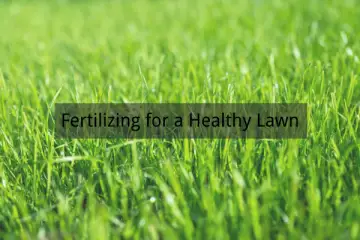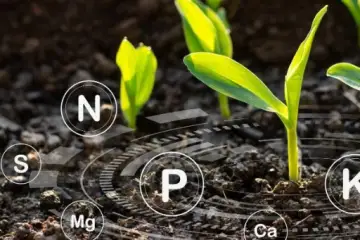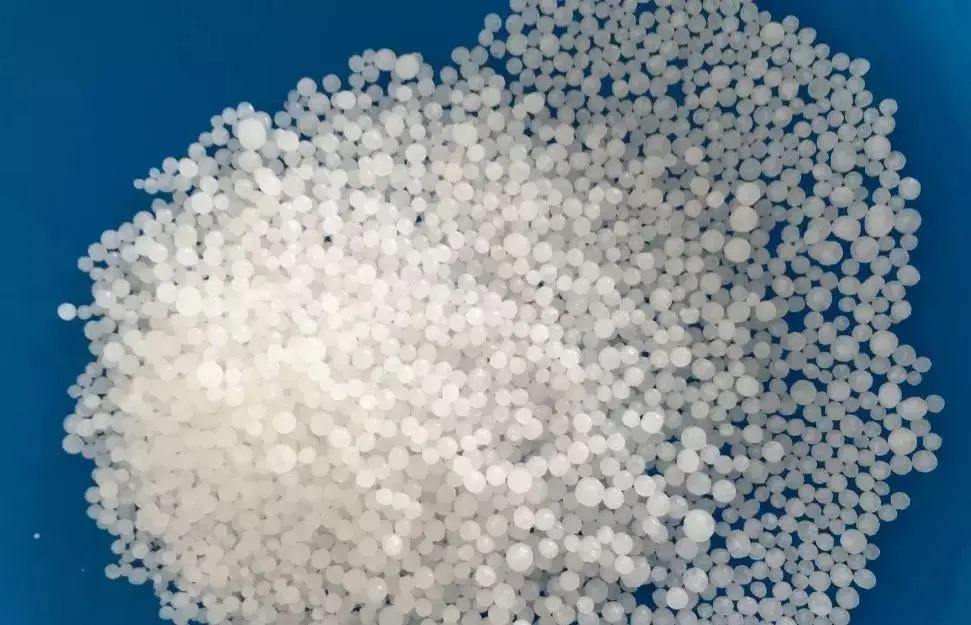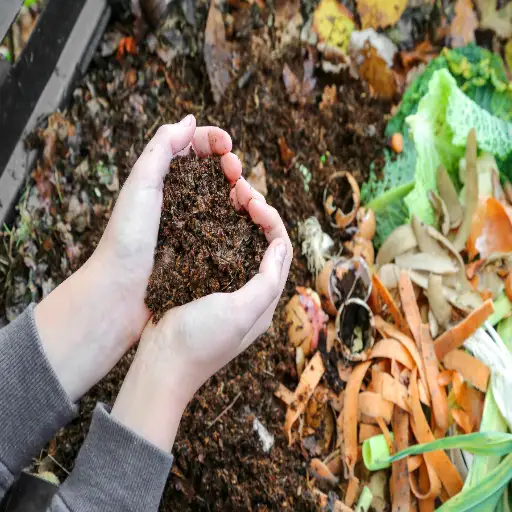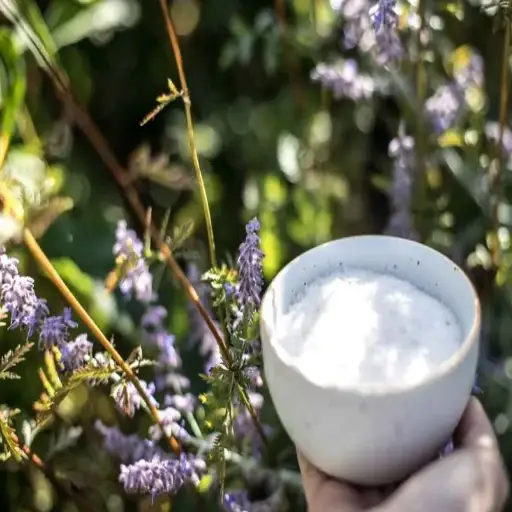Introduction
In the quest for sustainable living, embracing indoor plant fertilizer organic options has assumed greater importance. This decision is not only beneficial to our indoor plants but also positively impacts our environmental footprint. Organic fertilizers derived from natural sources are a stark contrast to synthetic ones which are often layered with chemicals that may be detrimental to our health and environment.
Dr. Lily Chen, an expert in organic horticulture says, ‘When choosing organic fertilizers for indoor gardening you create healthier living spaces.’ Synthetic fertilizers provide short term solutions yet they pollute our homes with unneeded chemicals thereby affecting air quality and putting risk on pets’ life.” The benefits of going organic include consistent plant nutrition through slow release of nutrients that result into sustainable development devoid of ups and downs commonly linked with chemical fertilizers.
Gardening enthusiasts who prioritize indoor plant fertilizer organic options ensure their gardens aren’t just productive but lush gardens too that add value to their eco-friendly lifestyles.
Understanding Indoor Plant Fertilizer Organic Options
To start with it is important for any gardener willing to practice natural approach in plant care should know what actually counts as an indoor plant fertilizer organic option. For example, in order to be considered as organics, fertilizers must derive from natural sources such as plants, animal by-products or minerals and undergo minimal chemical processing. This preserves the nutrients in their most natural states, enabling them to easily be taken up by plants thus boosting overall health.
The market offers various types of indoor plant fertilizer organic options that suit different needs and tastes. A good example is fish emulsion which is rich in nitrogen as it comes from fishery industry leftovers; thus leafy plants can benefit much from it. Alternatively vermicompost; worm castings contain a full range of nutrients plus beneficial soil bacteria enhancing root growth and immunity against diseases. Another option is compost teas produced by soaking composts in water which is a mild nutrient-rich solution capable of being used as a foliar spray or water for plants.
Dr. Edward Fields, a soil scientist, notes, “Slow-releasing nutrients from organic fertilizers such as fish emulsion, worm castings and compost teas are much more easily absorbed by plants.” These will lead to significant improvements in growth and vitality of your indoor plants without the harshness inherent in synthetic products.”
Each fertilizer listed above has its own unique advantages and can be selected according to the specific needs of your indoor plants. Employing these natural alternatives in gardening ensures that your garden receives the best care it can possibly have.
Benefits of Using Organic Fertilizers for Indoor Plants
The advantages of deciding to use organic indoor plant fertilizers reach beyond just promoting healthier growth. For homes that are concerned about health and environment, these are eco-friendly alternatives to synthetic fertilizers that ensure sustainability and a safe indoor living space.
This is because organic fertilizers have the advantage of releasing their nutrients slowly over time, making them less likely to cause shock or burns associated with high levels of synthetic chemicals. By nourishing plants gradually, they encourage stronger development and growth so leading to greener leaves as well as more solid flowers. Rebecca Sun, a plant physiologist says “Organic fertilizers mimic natural soil processes, which helps plants develop a strong root system and greater resilience to environmental stressors.”
Also, there are significant ecological implications in choosing organic indoor plant fertilizer. There are no harmful toxins or chemicals in these substances that could be released into the atmosphere through off-gassing or find their way into water supplies through leaching. This contributes to better quality air indoors while protecting pets and children who spend many hours within areas filled by plants’ dirt.
Apart from improving the health of plants and safeguarding indoor air quality, organic fertilizers contribute to beneficial soil microbes too. These include those microbes which assist in absorption of nutrients and also aid in disease control among plants. “Use of organic fertilizers improves microbial diversity in the soil which has direct implications on plant healthiness and soil vitality,” says Dr Sun.
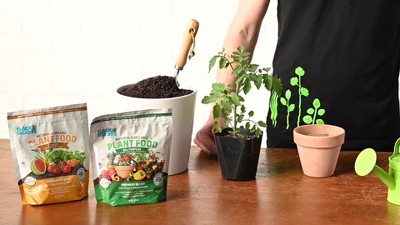
How to Select the Right Organic Fertilizer for Your Indoor Plants
Selecting the right organic plant food for your indoor plants is crucial in order to meet their specific nutritional requirements. At every stage of growth, each type of plant will have different demands as far as its general health and environmental conditions are concerned. Knowing how to make a choice about the best organic fertilizers can significantly improve plant growth and wellbeing.
When selecting an organic fertilizer, consider the primary nutrients that each plant needs: nitrogen (N), phosphorus (P), and potassium (K). Nitrogen encourages leaf growth while phosphorous supports root development and potassium boosts overall health and disease resistance. “It is important to match up a fertilizer with a certain phase of a plant’s life,” says Dr. James Peterson, a botanist. “For example, leafy plants would need a high-nitrogen fertilizer whereas bloomers may be given more phosphorous.”
Also, it is important to note that reading and understanding labels on organic fertilizers is very important. Organic certifications and labels demonstrate compliance with national organic standards which ensure no synthetic additives or harmful chemicals are used in this product. “Always look for certification from reputable sources confirming its organic status,” adds Dr. Peterson.
Below are tips on selecting the best organic fertilizer for your indoor plants:
- Review nutrient balance (N-P-K ratio) ensuring it suits your plants’ particular needs.
- Consider the method of application; some can be applied directly into soils while others might require dilution for liquid feeding.
- Check if it is necessary to use various nutrients for young plants compared to mature ones by assessing their current health status or stage of growth.
This way, by carefully picking up the proper indoor plant fertilizer based on these factors you can maximize your establishment’s performance inside your house garden space.
DIY Organic Fertilizer Recipes for Indoor Plants
Making your own homemade organic indoor plant fertilizer is a wonderful and cost-effective way of providing your greenery with high-quality nourishment. DIY organic fertilizers not only lower waste but also enable you to design the nutrient mixture as per the particular demands of your plants.
Simple Recipes for DIY Organic Fertilizers:
- Coffee Ground Fertilizer: Coffee grounds are nitrogen-rich, which makes them ideal for leafy plants. Just scatter used coffee grounds on top of the soil or stir into your potting mix.
- Eggshell Tea: Eggshells have plenty of calcium, which contributes to stiff cellular makeup in plants. Simmer crushed eggshells in a gallon of water for some minutes then allow it to stand overnight. Water your plants using the strained liquid.
- Banana Peel Fertilizer: Banana peels contain potassium and phosphorus that are important for enhancing growth in plants. Soak banana peels in water for several days and use this solution as liquid fertilizer. Alternatively, mix water with blended banana peels and pour directly onto garden soil.
One renowned organic gardener, Dr. Laura Green, stresses the importance of homemade manures: “Not only will DIY fertilizers ensure that you are using natural ingredients, but they also give you an opportunity to comprehend better what drives your plants’ development and how they could be improved further—it is all about being pocket-friendly too.”
Advantages of DIY Organic Fertilizers:
- Cost-Effectiveness: Homemade fertilizers are more cost-effective than commercial products.
- Customization: Depending on different stages of growth and needs, one can adjust levels of nutrients.
- Environmentally Friendly: By recycling kitchen scraps among other compostable items, it reduces landfill waste and minimizes chemical fertilizer usage.
By incorporating these simple, effective recipes into your gardening routine, you can boost your indoor plant health while contributing towards a greener planet.
Use of Farmyard Manure for Indoor Plants
It is through proper application of organic fertilizer for indoor plants that you maximize the benefits to your indoor plants and ensure their health. Understanding how to apply fertilizers properly can make a great difference in plant growth and nutrient use.
How to Apply Organic Fertilizer Best:
- Soil Mixing: Incorporate granular organic fertilizers like worm casting into the soil at potting time or just lightly mix into the soil surface during growing. It has a slow-release pattern hence promoting microorganism activities.
- Application by Solution: Liquid organic fertilizers such as compost tea or diluted fish emulsion should be applied directly onto the plant bed area. This approach makes nutrients readily available to the roots of plants. The timing for watering with these drenched solutions can be after every 2-4 weeks based on an individual’s growth stage and nutritional needs.
- Leaf Spraying: Some types of organic fertilizer can be used as a leaf spray. In situations where plants are deficient in some nutrients, this method offers an excellent opportunity to provide them with fast nutrients. Ensure that both sides of leaves get sprayed by squirting the solution using a nozzle directly onto them, concentrate more on lower leaves than upper ones while spraying onto their foliage surfaces until they become wetted but not soaked completely especially during dawn or dusk hours to avoid scorching and burning effects resulting from intense sunlight rays reaching them.
When and How Often:
Depending on the lifecycle stage observed in plants, application rates should change accordingly, this is also visible in terms of physical plant growth rate. Hence, during periods when they are actively growing most often occurring throughout spring up-to summer months these would necessitate higher feeding intervals while oppositely, reduced feedings should occur with fall up-to winter dormant phases so as not to feed them excessively leading towards over-fertilization causing nutrient burn or even death of a plant.
“Watch plants closely after applying any fertilizer”, advises Dr. Emily Forrest, an indoor plants expert. If you see symptoms of over-fertilization such as salt building up on the soil surface and leaves turning yellow, reduce the fertilizer concentration or frequency.
By following these guidelines and making adjustments based upon your specific indoor circumstances and plant response, you can use organic indoor plant fertilizers to improve plant growth and well-being.
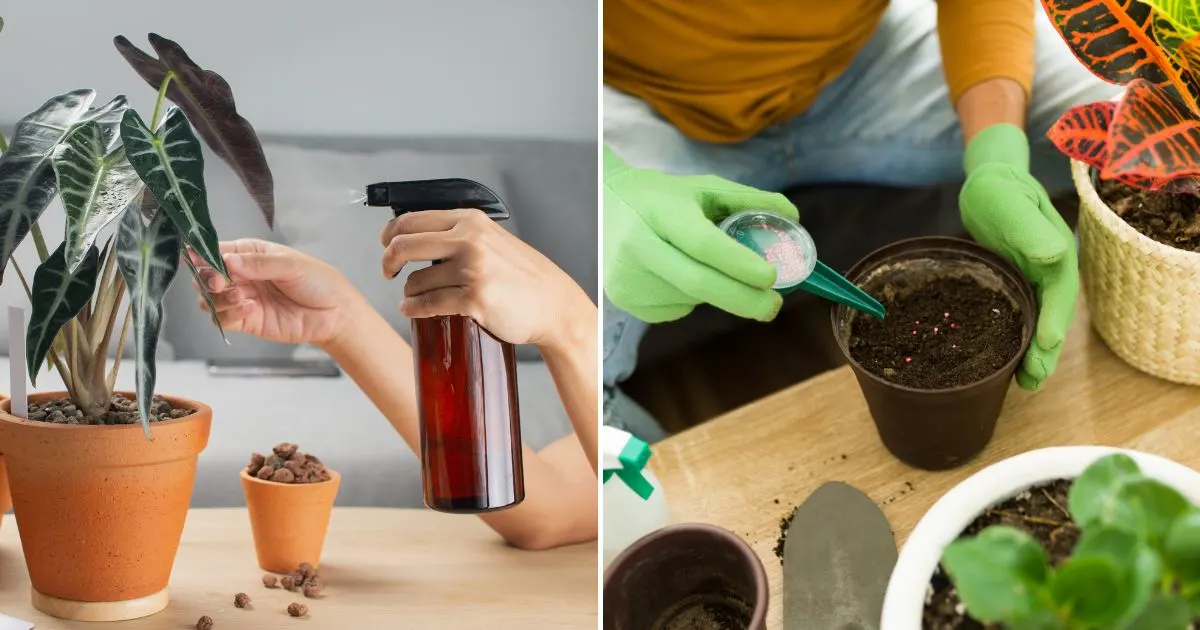
Conclusion
The potential of using indoor plant fertilizer organic alternatives goes far beyond just feeding the plants—it helps to create a healthier home environment and supports sustainability. In this regard, the benefits of using organic fertilizers for indoor plants are better plant growth rates, improved soil quality and less negative impact on the surrounding ecosystem, which makes it an excellent choice for green-conscious gardeners.
When you integrate organic fertilizers into your indoor gardening program, you ensure that your plants grow in an ideal habitat while also participating in the larger conservation movement. These types of fertilizers help maintain clean air within the house, ensure that pets and young children do not come into contact with harmful chemicals, among others.
It is important then to choose the right kind of organic fertilizer for optimum benefits, apply them properly and monitor the response of your crops so as to adjust them accordingly. As mentioned earlier, whether you use premade options or make DIY recipes out of these ingredients significantly affects both health status of your indoor crops and environmental quality.
In conclusion reliance on indoor plant fertilizer organic techniques is more than just another choice in gardening; it is an agreement towards living healthier lives in a more sustainable way. You can positively change things around you by going for organic thus contributing to global environmental health. May these ways be part of the journey towards making a greener thriving indoor garden.
Frequently Asked Questions (FAQs) About Indoor Plant Organic Fertilizers
What constitutes organic fertilizer?
Indoor plant organic fertilizers are organic if they originate from nature such as plants, animal droppings, or minerals and are processed without the use of any synthetic chemicals. This way, the nutrients remain pure and keep their natural advantages.
How regularly should I apply organic fertilizers to my indoor plants?
This will depend on the particular type of organic fertilizer and your plant’s individual nutritional needs. In general, you can use liquid Organic fertilizers once in every two to four weeks while slow-release granular ones can be used less frequently. Always check for symptoms of under-fertilization and over-fertilization in your plants.
Can organic fertilizers burn my plants?
Although these biological organisms would not cause nutrient burn the way a synthetically made alternative would because its nutrient release rate is slower than synthetic options, excessive applications can still lead to problems. Make sure you adhere to recommended application rates and observe the response of your crops.
Are there certain organic fertilizers which are ideal for flowering plants?
Yes there are; high phosphorous organic fertilizers such as bone meal or bat guano that support bud formation in flowering plants. Ensure you select one that suits your flowering requirements for a given crop.
Is it possible for me to make my own organic fertilizers at home?
By all means, making homemade organic fertilizer is an easy yet effective way of feeding nutrients into your crops. Some commonly used homemade options include banana peel fertilizer, compost tea or eggshell tea; which not only recycle kitchen waste but also do not harm growing crops.
Here are three scholarly references about indoor plant fertilizer organic :
- Compost Tea as Organic Fertilizer and Plant Disease Control: This study discusses how compost tea can control plant pathogens and improve plant nutrition and growth, serving as an alternative to synthetic fertilizers and pesticides (Ramírez-Gottfried et al., 2023).
- Effects of Organic Fertilizers on Plant Growth and the Rhizosphere: This research explores the impact of plant- and animal-derived organic fertilizers on plant growth and soil microecology, providing insights into organic fertilizer selection for sustainable development.
- Organic Fertilizer – an overview: This article covers various plant-derived materials used as organic fertilizers, highlighting their role in enhancing soil fertility and promoting sustainable agricultural practices .

